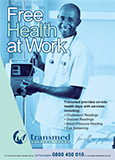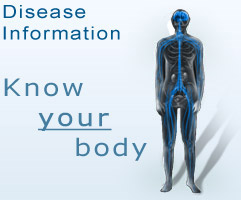Bipolar
What is bipolar disorder?
Bipolar disorder causes a person to experience periods of mania (feeling excessively happy, impulsive, irritable or irrational) or hypomania (a milder form of mania), and may also cause a person to experience periods of major depression (feeling excessively sad). It affects men and women equally, and usually appears for the first time between the ages of 15 and 30 years.
Bipolar disorder can lead to severe illness and even death by suicide if untreated or treated incorrectly. A number of effective treatments are available.
People with bipolar disorder typically have cycles of relapse (when depression and/or mania occur) and remissions (when symptoms improve or resolve), often in an alternating pattern.
Causes of bipolar disorder
The exact cause of bipolar disorder is still uncertain. Studies suggest that it results from an imbalance of chemicals in the brain. These chemicals allow cells to communicate with each other and play an essential role in all brain functions, including movement, sensation, memory and emotions.
People with a family history of bipolar disorder have an increased risk of developing the condition. This is thought to be the result of changes in genes, which are passed down from parents to children. Results of gene research indicate that there are probably multiple genes affected in persons with bipolar disorder.
Symptoms of bipolar disorder
Mania
Mania causes a person to feel abnormally and persistently happy, irritable, hyperactive, impulsive or irrational. These feelings last at least one week and may be severe enough to require hospitalisation. The mania of bipolar disorder is not caused by other medical conditions or drug abuse.
Other symptoms may include:
- feelings of superiority and grandiosity;
- difficulty falling sleep or restlessness;
- excessive talking;
- racing thoughts (‘thought pressure');
- short attention span;
- laughing or joking incessantly; and
- inappropriate spending sprees or sexual activity.
Mania often causes a person to have difficulty maintaining relationships with friends and family, and can interfere with work or other responsibilities. During a manic episode, a person's mood may change rapidly from euphoria to depression or irritability.
Hypomania
Hypomania is less severe than mania, but causes a significant change in mood that is abnormal for the patient. Hypomania does not seriously impair a person's ability to function or require hospitalisation. Hypomania can follow a decreased need for sleep and may lead to a manic or depressive episode. As a result, it is generally treated with medication.
Depression
People with major depression experience significant sadness and difficulty functioning. They are typically depressed most of the day and may have little or no interest in any activity.
Other symptoms may include one or more of the following:
- significant weight loss or gain;
- change in sleeping patterns, including insomnia or excessive sleeping;
- change in activity level (including sluggishness, reduced activity or agitation);
- fatigue or loss of energy;
- feelings of worthlessness or guilt;
- difficulty concentrating and making decisions; and
- recurring thoughts of death or suicide.
To be considered as major depression, a patient must have at least five symptoms on a daily or nearly daily basis for at least two weeks. In addition, symptoms must not be caused solely by a medical condition, drug abuse, medication or the loss of a loved one.
Diagnosis
There is no blood or imaging test that can determine if a person has bipolar disorder. The diagnosis is based upon a comprehensive medical and psychological history and physical examination. Bipolar disorder can be confused with a number of other medical and psychiatric conditions, in which case your medical advisor may request laboratory testing to rule out other diagnoses.
Treatment of bipolar disorder
Mania
Treatment during an episode of mania focuses on managing symptoms and ensuring the patient's safety. In the early phase of mania, called the acute phase, a patient may be psychotic or display such poor judgment that they are at risk of injuring themselves or others. Hospitalisation may be necessary until symptoms are controlled (pre-authorisation must still be obtained). Treatment of mania continues until symptoms are completely resolved and the patient is able to function normally, although many patients are maintained on medication indefinitely to prevent a recurrence of mania symptoms.
Medication is the primary treatment for mania and various types of medication are available. It is not usually possible to know which medication will be the most effective and cause the least side effects, and it may be necessary to try several medications before finding the best one. A person who responds well to the prescribed medication is likely to respond well to the ongoing treatment of the condition.
Depression
During the initial phase of bipolar depression, an antidepressant medication is usually the best option for treatment. However, antidepressants may cause manic episodes and are generally used only in the initial phase of bipolar depression in combination with a mood stabiliser.
References
1. SASOP Guideline on Bipolar Disorder. 2008. Used with permission.
2. Proposed algorithm for Bipolar Disorder as CDL disease. CMS. 2006.
3. http://www.uptodate.com/home/index.html
 TransmedBanner4.jpg)

